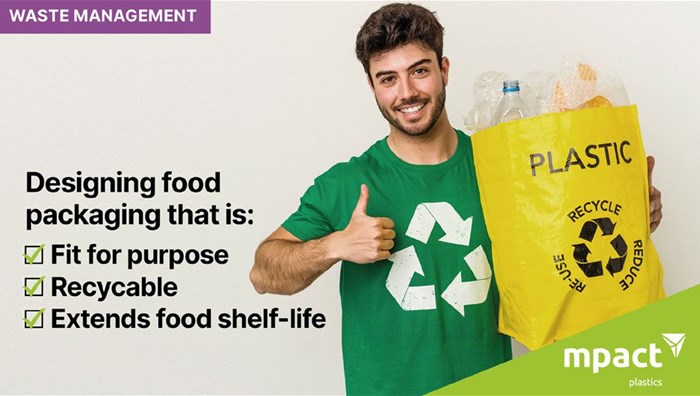The Consumer Goods Council of South Africa’s (CGCSA) estimates that about 10 million tonnes of food are wasted in South Africa each year, therefore the Food Loss and Waste Voluntary Agreement was established to curb food waste.
To this end, several South African retailers and food producers have pledged to reduce their supply chain food waste by 50% by 2030.
Globally, research has found that food waste is a bigger cause of climate change than plastics. According to Scottish based climate change research organisation, Zero Waste Scotland, when food is wasted, all the resources that go into growing, processing and transporting, packing and cooking it are wasted. Moreover, food waste at landfills emits methane, a damaging greenhouse gas.
Contrary to common belief that plastic packaging has a negative impact on the environment, food waste has a significantly higher carbon footprint impact compared to plastic. Well-designed packaging is a viable and economic tool to reduce food waste and food insecurity by means of protection and shelf-life extension.
Mpact is well acquainted with these challenges and designs and manufactures fit-for-purpose packaging that not only has the potential to reduce the carbon footprint and environmental impact associated with food waste, but also contributes to sustainability within a circular economy by taking the end-of-life into account. This holistic approach not only reduces food waste, but benefits society and contributes towards meeting sustainability targets. Mpact Plastics advocate for packaging solutions that promote recycling within existing local recycling systems. Food packaging optimisation remains important so that consumers and brand owners can experience the benefit of packaging that extends shelf-life and provides them with the opportunity to lower their environmental impact.

































